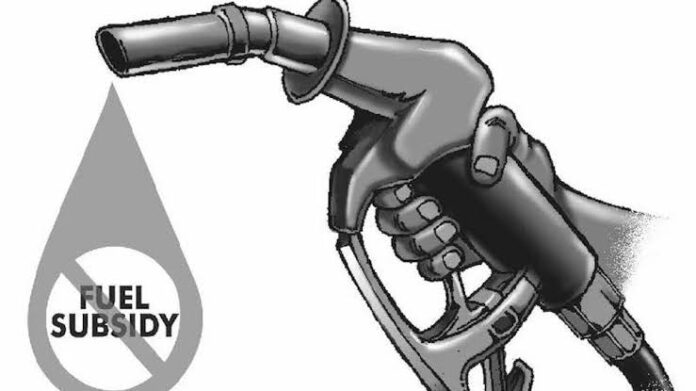Fuel marketers and the Nigerian National Petroleum Company Limited clash over subsidy removal.
In a dramatic turn of events, fuel marketers, represented by the Independent Petroleum Marketers Association of Nigeria, have suggested a startling increase in the price of petrol to N1,200 per litre, attributing it to the rising subsidy amid economic challenges.
This revelation follows a clash between the Nigerian National Petroleum Company Limited (NNPCL) and fuel marketers over the removal of the petrol subsidy. The ongoing depreciation of the naira against the U.S. dollar has intensified the debate on the subsidy’s impact.
The local currency closed at 998/dollar officially, while the black market recorded 1,225/dollar on Tuesday, reflecting the economic pressures influencing the fuel market.
Economists and oil marketers argue that the subsidy on Premium Motor Spirit (PMS) is on the rise due to the naira’s depreciation and increasing crude oil costs. They contend that, in a free market, petrol should be priced at N1,200 per litre.
Contrarily, the NNPC insists that it is recovering its full importation costs for PMS and denies the existence of a subsidy. The Chief Executive Officer of the Financial Derivatives Company, Bismarck Rewane, contends that the subsidy was reduced, not removed.
The clash in perspectives has triggered uncertainty about the actual status of the subsidy, with fuel marketers projecting a potential surge in petrol prices. The current price, ranging from N617 to N660 per litre, may see a substantial increase if the proposed N1,200 per litre is considered.
Despite President Bola Tinubu’s declaration of subsidy removal in 2023, conflicting statements from experts and the NNPC create ambiguity around the government’s stance on fuel subsidy.
Analysts emphasize the need for transparency and effective communication to address concerns about petrol prices and the subsidy’s impact on citizens.
As the subsidy debate continues, the economic challenges reflected in the naira’s depreciation persist, posing questions about the government’s approach to stabilizing the fuel market and mitigating the potential socio-economic consequences of subsidy removal.
In the midst of these developments, concerns about oil theft in the Niger Delta region persist, with the NNPC reporting 112 cases of crude oil theft within a week.
The ongoing battle against oil theft underscores the broader challenges facing Nigeria’s oil and gas sector, including production quotas and financial losses due to criminal activities.
The fuel market remains in a state of flux, awaiting decisive government action and clear communication to address the complexities surrounding subsidy policies and their implications for the Nigerian economy.










